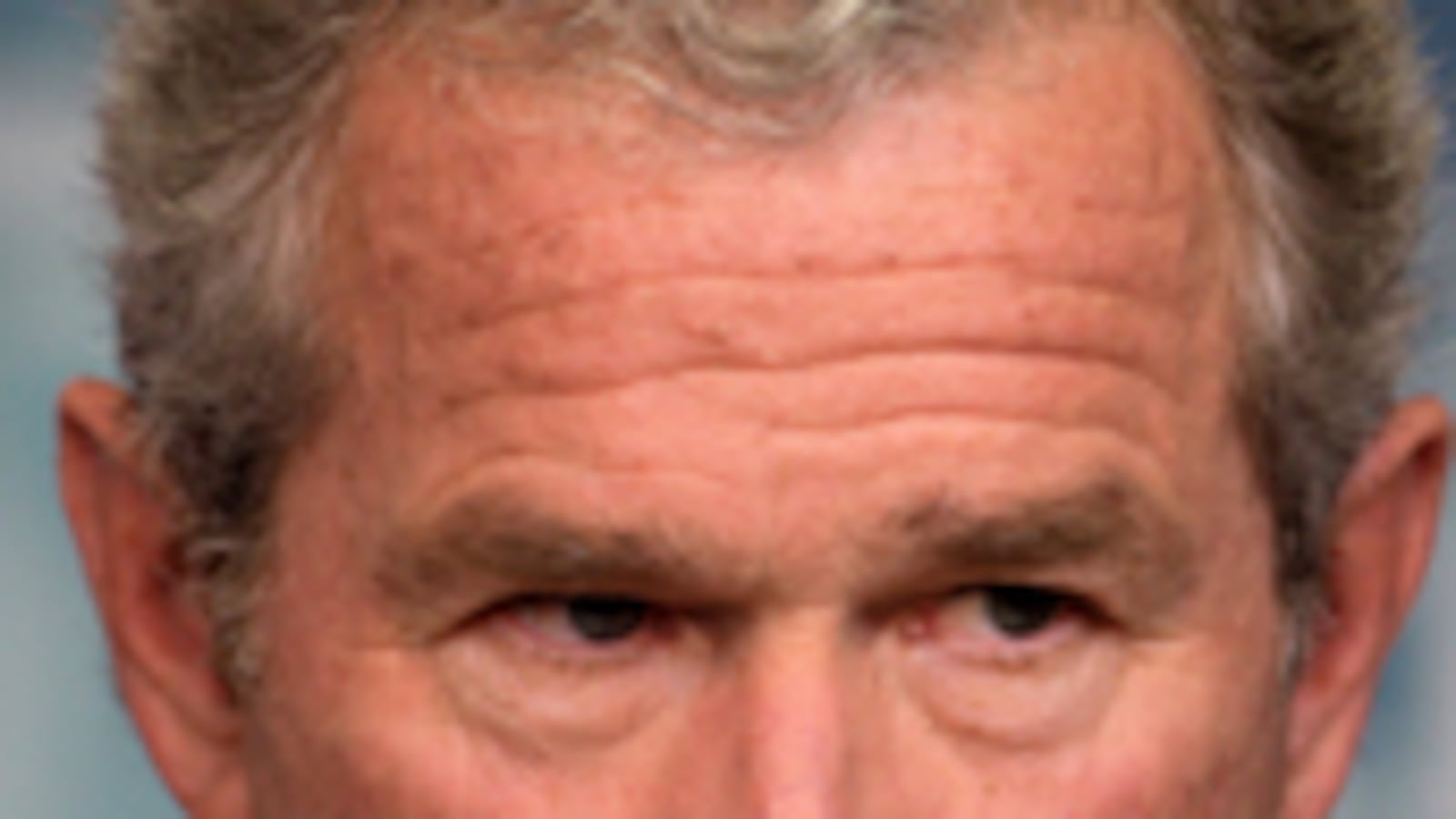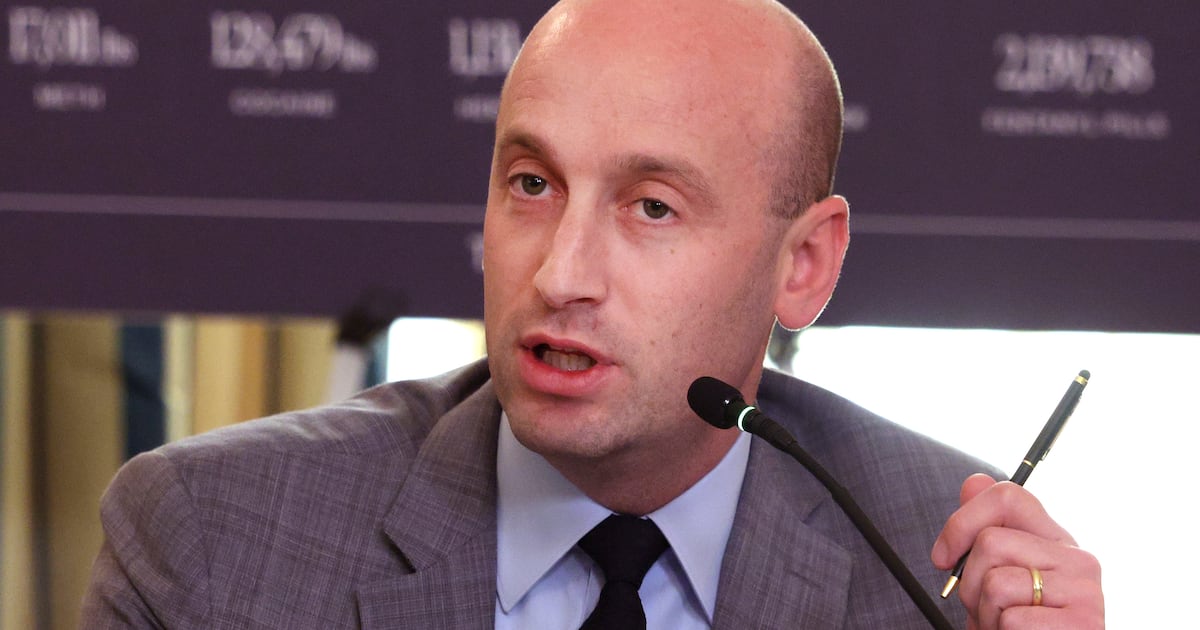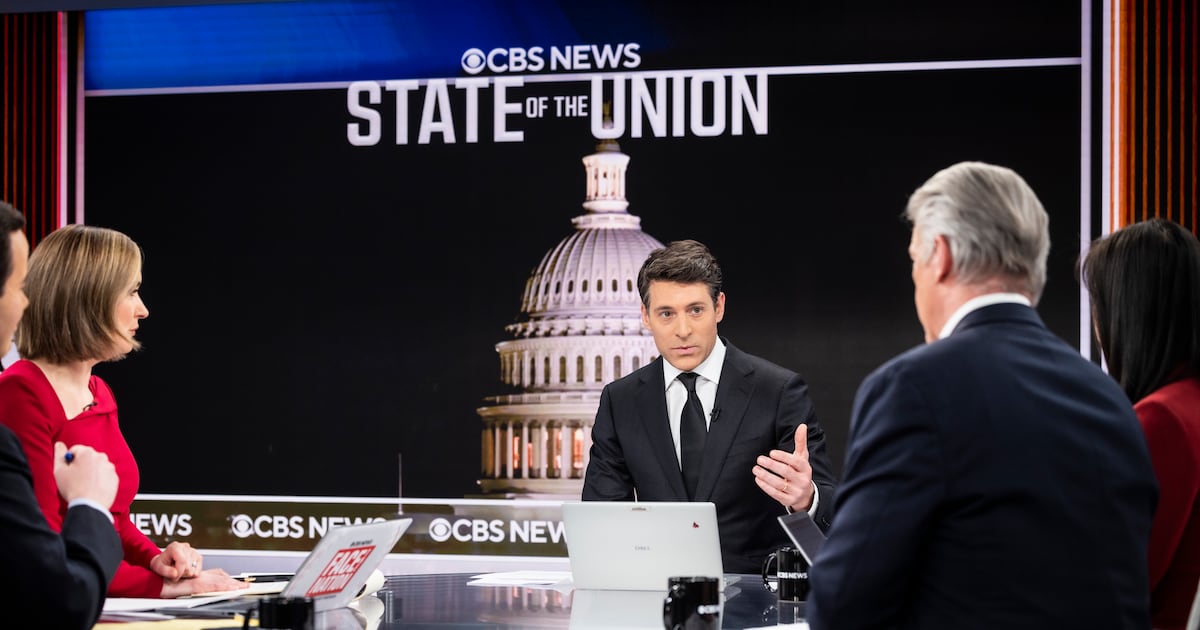From forgotten scandals to " The Last Dick," read the entire Daily Beast Farewell to Bush Chronicles.

Psychiatrist Justin Frank, author of Bush on the Couch: Inside the Mind of the President, says the trail of destruction wrought by Bush over the last eight years is the direct consequence of handing a man with a destructive personality profile tremendous power.
George Bush’s presidency is the culmination of a lifelong history of sadistic practices that he must deny in order to maintain his fragile psychological equilibrium. Since childhood, Bush was labeled a bad child, a troublemaker, and a delinquent. He stuck firecrackers into frogs and exploded them; he shot and wounded his little brothers with a b-b gun; he branded fraternity pledges at Yale with red-hot coat hangers; he mocked others and was a verbal bully, irreverent about anything serious.
What do bad boys do when they grow up? They stop; they change. But Bush never stopped being a bad boy; he only did it in more subtle, arguably socially acceptable ways.
Now, as this bad-boy president prepares to leave office, many of his critics are pinning his failures on bumbling incompetence. The conventional wisdom holds that Bush is either a good hearted guy who got in way over his head—or the puppet of Dick Cheney. But if he were simply good-hearted he wouldn’t have mocked his own reasons for committing our young men and women to war; if he were a puppet, he was a puppet who chose his puppeteers. In my psychoanalytic exploration, the trail of destruction wrought by Bush over the last eight years is the direct consequence of handing a man with a destructive personality profile tremendous power.
What do bad boys do when they grow up? They change. But Bush never stopped.
Bush is leaving office immensely satisfied with his presidential accomplishments: Not merely wreaking havoc worldwide—actively destroying Iraq, and passively turning his back on New Orleans—he became feared both abroad and at home, where Congress and the press have yet to muster the courage to confront him. Now, the financial devastation of his policies seems to be hurtling the globe ever faster towards an economic Judgment Day.
The secret sadist in Bush greets all this as wonderful news, made even better by the possibility that he won’t get caught or punished, and that others will at least have to clean up his mess if they can. He may look and sound uncharacteristically sheepish of late, but his sense of self as president remains unchanged at its core. His primary concern remains self-regard, not history’s.
Evading responsibility has always been a central element of the pleasure he takes in the suffering of others, and his evasion has taken many forms, from colluding with questioners to let him off the hook, asking “Ken who?” when asked about Enron’s Ken Lay, to making light of his cruel deeds, casually dismissing the fraternity branding as nothing worse than a “cigarette burn,” or insisting that the United States does not torture when confronted by reporters about Abu Ghraib.
Sadism serves purposes besides giving the sadist pleasure at the pain he inflicts on others. For Bush, the roots of his bad-boy sadism run deep. As a young boy, he identified with his harsh and often cruel mother, whose inability to provide necessary maternal early nurturing culminated in her withdrawal after George’s young sister’s illness and untimely death. He was a ruthlessly-teased, learning-disabled little boy who was criticized by teachers for not being able to keep up in class. And he was left behind by an emotionally distant father who reinforced the message from his mother that it was pathetic for a seven-year-old to show grief about his sister’s death. All of these factors contributed to an unrelenting self-hatred that made him feel weak and ashamed, things he tried to deny by posing as superior, exploiting weakness in others and becoming a bully. This process of externalizing his damaged sense of self, which he then attacked, became so strong later in life that it could only be partly managed by daily exercise and prayer.
By January 20, George W. Bush will have inflicted enough damage worldwide so he can retire to a quiet life of watching others scramble to clean up his mess. The missions he accomplished as president all bear the personal brand of his destructive streak: astronomic debt to China, horribly wounded veterans, a crippled health care system, and America’s damaged international reputation. And they will continue to be felt for years to come. What once started as cruelty to animals, siblings, and fraternity brothers has blossomed exponentially.
Bush’s life-long violent tendencies have been expressed both actively and passively. As a youth he enjoyed inflicting pain directly; as a first-term president he let surrogates do his bidding; and in his second term he passively turned his back in malign indifference to the suffering of others. His pathological sadism has never waned, though his efforts to hide it (from himself and others) have occasionally succeeded. He distracted us from his destructiveness by inviting us to express our own natural destructive impulses in the name of the good, specifically justifiable revenge against Osama bin Laden. And he really snookered his Christian supporters, inciting people who are fundamentally about love and forgiveness to openly practice hate towards their fellow (gay, pro-choice, non-Christian) man.
After 9/11, Bush discovered that Americans had handed over to him much of their sense of personal responsibility for thought and action. We were seduced into developing a thirst for revenge, in a war on terror that he originally called a crusade (until his aides told him to change terminology). Bush’s conscious fantasy about that crusade remains unwavering; what is unconscious is the fantasy that allows him to be willfully cruel, to dehumanize foreigners and the poor, whether they be soldiers or women and children. And he got us to go along with him.
Preemptive war preempted thought, giving us all permission vicariously to gratify our own sadistic impulses. Bush made it easy for all of us by removing the need to struggle with right and wrong. He just told us we were right to support him, and that we were doing what was best for ourselves, for our nation, and for God. But all the while he knows, at least unconsciously, how sadistic and destructive he is; otherwise he wouldn’t need a heavy regimen of daily prayer, or an allegedly dangerous foreign power to demonize. Love and compassion are actually dangerous to Bush because they would push him to re-assess his experience of being surrounded by hostile forces, which might interfere with the dehumanization necessary for him simply to enjoy his sadism. He has denied his own sadism to himself by expressing it in the guise of the good.
On January 20th, Bush will smirk once more, this time in relief that he made it through without having been stopped or caught. As he prepares to leave office, and surveys the wreckage of the peace and prosperity he began destroying eight years ago, Bush consciously sees only what he defensively regards as the collateral damage of his crusades to save the nation and the world. But if we could listen to his unconscious, between satisfied chortles over forcing the Obama family to make its own hotel arrangements and the last-minute arrival of cake plates worthy of Marie Antoinette, we’d hear him say to himself what his father was regrettably—and for the rest of the world, tragically—never around or willing to say: “Heck of a job, Bushie.”
Read More Farewell Chronicles: Part I: 20 Forgotten Bush ScandalsPart II: Son of Nixon Part III: I Survived the Bush Presidency
Justin A. Frank is a clinical professor in the Department of Psychiatry at the George Washington University Medical Center and a teaching analyst at the Washington Psychoanalytic Institute. He is a regular contributor to The Huffington Post and author of Bush on the Couch: Inside the Mind of the President.






